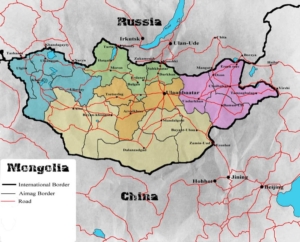Trust
Our stories are our children. We nurture them, worry about them, and entrust them to others on their journey into the world. As writers, we trust our beta readers, critique partners, agents, and most of all, our publishers to care for and not share our work inappropriately.
Imagine, after years of working with an agent and a publisher, you’re told your story won’t sell. Then, to your horror, you walk into a bookstore, pick up a bestselling novel, and discover it’s almost exactly like your story that wouldn’t sell.
 Author Lynne Freeman claims this happened to her. She alleges her former agent worked with a publisher to find another author to write the YA paranormal fantasy romance Crave that infringes her unpublished YA paranormal fantasy romance Blue Moon Rising. In 2022, Freeman brought a copyright infringement lawsuit (1:22-cv-024350), naming her agent and publisher among others as defendants. Her complaint consists of 87 pages detailing the similarities she alleges between CRAVE and her manuscripts and notes.
Author Lynne Freeman claims this happened to her. She alleges her former agent worked with a publisher to find another author to write the YA paranormal fantasy romance Crave that infringes her unpublished YA paranormal fantasy romance Blue Moon Rising. In 2022, Freeman brought a copyright infringement lawsuit (1:22-cv-024350), naming her agent and publisher among others as defendants. Her complaint consists of 87 pages detailing the similarities she alleges between CRAVE and her manuscripts and notes.
In an order on the defendants’ motion for summary judgment, the judge summarized the factual background as follows. (Internal citations are omitted for ease of reading.)
Freeman and Kim started working together in December 2010, when they executed a contract for Kim and Prospect to serve as Freeman’s literary agent. Freeman’s book, Blue Moon Rising (“BMR”), is about Anna, a 16-year-old girl living in Anchorage, Alaska. Anna falls in love with a boy, Ash. She learns that Ash is a werewolf-like creature, that she is half-witch, half-werewolf, and that forces of good and evil have waged supernatural war since the beginning of time. Upon turning 17, Anna will hold the key to maintaining the balance of good and evil.
For more than three years, Freeman and Kim worked together to publish BMR. During that period, Freeman sent Kim at least 10-15 different versions of BMR, as well as many sets of notes. Kim provided Freeman with edits and sent BMR to various publishers. During rounds of revisions, Freeman changed her novel’s title to Masqued. Kim sent that iteration to Stacy Abrams, Entangled’s Executive Editorial Director, in 2013. Ultimately, Kim and Freeman were unable to secure a publishing deal. In March 2014, Kim and Freeman terminated their contract and amicably parted. ways. BMR remains unpublished.
Kim has represented Wolff since 2007. In 2019, Elizabeth Pelletier, Entangled’s Chief Executive Officer, decided that Entangled should publish a young adult novel with a “fish out of water trope” or an “ordinary girl in a super rarified world” plot. Pelletier instructed Abrams and other Entangled editors “to find an author to write a book in the paranormal genre for Entangled’s teen line.” Abrams reached out to Wolff directly to see if she could quickly write that book for Entangled. Wolff expressed interest and sent five plot ideas to Abrams, including a plot about a warlock or vampire boarding school. In May 2019, Entangled and Wolff officially decided to work together on that project, which would become Crave.
The protagonist in Crave is Grace, a 17-year-old girl who moves from San Diego to remote Alaska following the death of her parents. Grace attends a magical Hogwarts-like boarding school and falls in love with Jaxon, a vampire. Grace learns that she is half-witch, half gargoyle and participates in supernatural battles. She ends up in a love triangle with Jaxon and his believed-dead brother, Hudson. After hitting major commercial success, Crave became a four-book series, with Crush, Covet, and Court following the first book. All four books have been published by Entangled and distributed by Macmillan. Universal Studios is planning a movie based on Crave.
The parties hold different views about who wrote Crave. According to the Defendants, Wolff wrote the series, Pelletier provided substantive edits, Abrams provided copy edits, and Kim provided moral support. Additionally, Kim suggested some chapter titles and contributed to the Crave series “bible,” an internal guide detailing Crave’s many subplots and characters. Freeman suggests a different truth. Freeman asserts that Pelletier, Abrams, and Kim all helped write the Crave series.
While some of Freeman’s state law claims were dismissed, the case is currently headed to a jury trial. You can read more in Did a Best-Selling Romantasy Novelist Steal Another Author’s Story? by Katie Waldman in the January 6, 2025 edition of The New Yorker. This is definitely a case to watch.
 Unfortunately, this sort of dispute isn’t new to the publishing world. Over the years, there have been other notable cases. Think back to when Nora Roberts sued Janet Dailey. And don’t forget Tess Gerritsen’s Gravity Lawsuit.
Unfortunately, this sort of dispute isn’t new to the publishing world. Over the years, there have been other notable cases. Think back to when Nora Roberts sued Janet Dailey. And don’t forget Tess Gerritsen’s Gravity Lawsuit.
Trust, like an ancient Ming dynasty vase, is priceless. And like a Ming vase, once broken, can never be fully restored. Has this every happened to someone you know?


 So I decided to borrow an old screenwriter’s trick. In the mystery genre, the reader expects the stalwart detective to have discovered all clues and put them together by the end. So rather than driving my story engine from beginning to end, I threw it in reverse. I wrote the climax first.
So I decided to borrow an old screenwriter’s trick. In the mystery genre, the reader expects the stalwart detective to have discovered all clues and put them together by the end. So rather than driving my story engine from beginning to end, I threw it in reverse. I wrote the climax first.